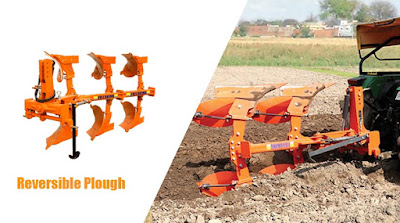In the current era of mechanization, farmers are using various types of tillage implement like a rotary tiller, ripper, power harrow, plow,cultivators, etc according to the need and soil conditions, disc harrow is one of them. It is a secondary tillage implement used for soil preparation for planting or sowing purposes.
Disc Harrow - It is one of the popular tractor implement attached on the tow hook. It helps in breaking up clods and surface crusts, It also enhances soil granulation and surface uniformity, It prevents weed growth and destroys existing weeds. The major benefit of using a disc harrow, it till the soil where crops are to be planted. It is also used to chop up unwanted weeds or crop residues.
disc harrows are tractor-driven and are supported either by a three-point lift or hydraulically by wheels. The large ones have side sections that can be raised vertically or that fold up to allow easier road transport or to provide better storage configurations.
Variety of Disc Harrow:
- High Speed Disc Harrow
- High Speed Disc Harrow Pro
- Ultra Series Heavy Duty Hydraulic Harrow
- Extra Heavy Duty Hydraulic Harrow
- Heavy Duty Hydraulic Harrow
- Robust Poly Disc Harrow/Plough
- Poly Disc Harrow
- Compact Model Disc Harrow
- Mounted Offset Disc Harrow
- Daband Harrow
- Tandom Disc Harrow
- Hunter serier harrow
- Maxx Power Harrow










